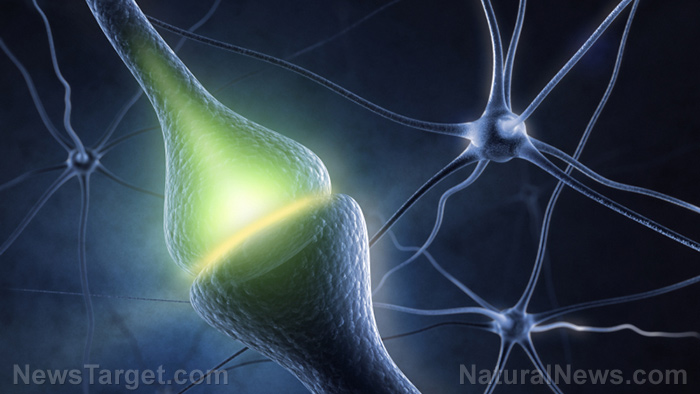Exciting new breakthrough could lead to a cure for multiple sclerosis
10/25/2017 / By Russel Davis

A recent study published in the Journal of Neuroinflammation revealed a mechanism that may one day help identify the root cause of multiple sclerosis, and develop long-overdue treatments for the disease. As part of the study, a team of international researchers from the University of Exeter in the U.K. and the University of Alberta in Canada examined brain tissue samples and focused on a compound called Rab32, a protein known to affect certain mitochondrial processes.
The research team found that brain tissue samples taken from patients with multiple sclerosis had higher levels of Rab32 compared with brain tissue samples taken from people who did not have the disease. The experts also noted that the presence of Rab32 coincided with certain disruptions in a communication system that triggered mitochondrial dysfunction. According to the research team, such disruptions caused toxic effects in the brain of MS patients.
In addition, the experts added that the disruption was due in part to a cell compartment called the endoplasmic reticulum — which generates, processes, and transmits many compounds used inside and outside the cell — being too close to the mitochondria. According to the experts, ER has many functions including calcium storage. The research team noted that short distance between the ER and mitochondria may result in a communication disruption between mitochondria and the calcium supply. It was previously known that calcium uptake was essential in cell functioning.
The research team did not identify the causes of higher Rab32 levels, but inferred that a defect in the base of the ER might play a role in the condition. The results may help health experts to find ways in using the protein as a target for MS treatment.
“Multiple sclerosis can have a devastating impact on people’s lives, affecting mobility, speech, mental ability and more. So far, all medicine can offer is treatment and therapy for the symptoms – as we do not yet know the precise causes, research has been limited. Our exciting new findings have uncovered a new avenue for researchers to explore. It is a critical step and, in time, we hope it might lead to effective new treatments for MS,” study author Professor Paul Eggleton said in DailyMail.co.uk.
“No-one knows for sure why people develop MS and we welcome any research that increases our understanding of how to stop it. There are currently no treatments available for many of the more than 100,000 people in the U.K. who live with this challenging and unpredictable condition. We want people with MS to have a range of treatments to choose from, and be able to get the right treatment at the right time,” said Dr. David Schley, Research Communications Manager at the MS Society.
Multiple sclerosis by the numbers
Data from the Multiple Sclerosis Foundation revealed that about 2.5 million people around the world suffer from multiple sclerosis. The foundation also noted that more than 400,000 people in the U.S. have the disease. According to the foundation, about 200 people in the U.S. get diagnosed with MS every week. In addition, MS rates were found to be higher in states that were farther from the equator.
According to the foundation, MS rates range from 57 to 78 cases per 100,000 people in the southern states. In contrast, MS rates were twice as high in the northern states at about 110 to 140 cases per 100,000. Furthermore, MS incidence was found to be higher in colder climates. The foundation adds that people of Northern European ethnicity had the highest risk of developing MS regardless of their residence. On the other hand, the lowest risk of MS was seen in people of Native American, African and Asian descent. (Related: Learn more about other promising treatments for multiple sclerosis.)
Sources include:
Tagged Under: brain health, central nervous system, disease treatment, inflammation, minerals, MS, multiple sclerosis, nerve, research




















